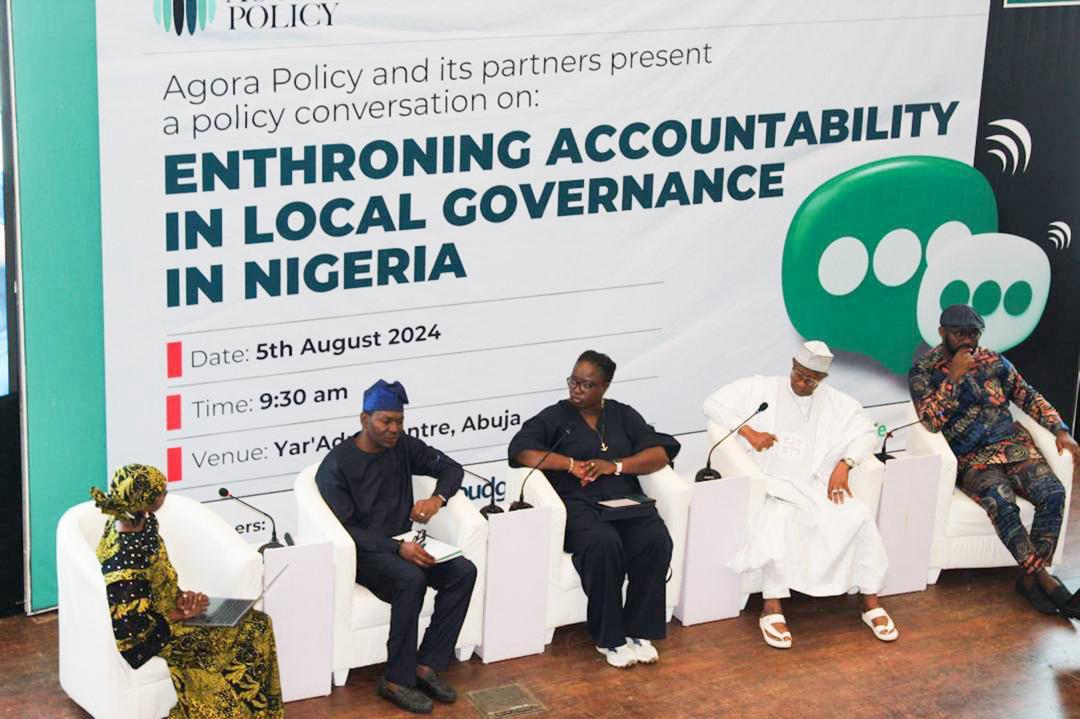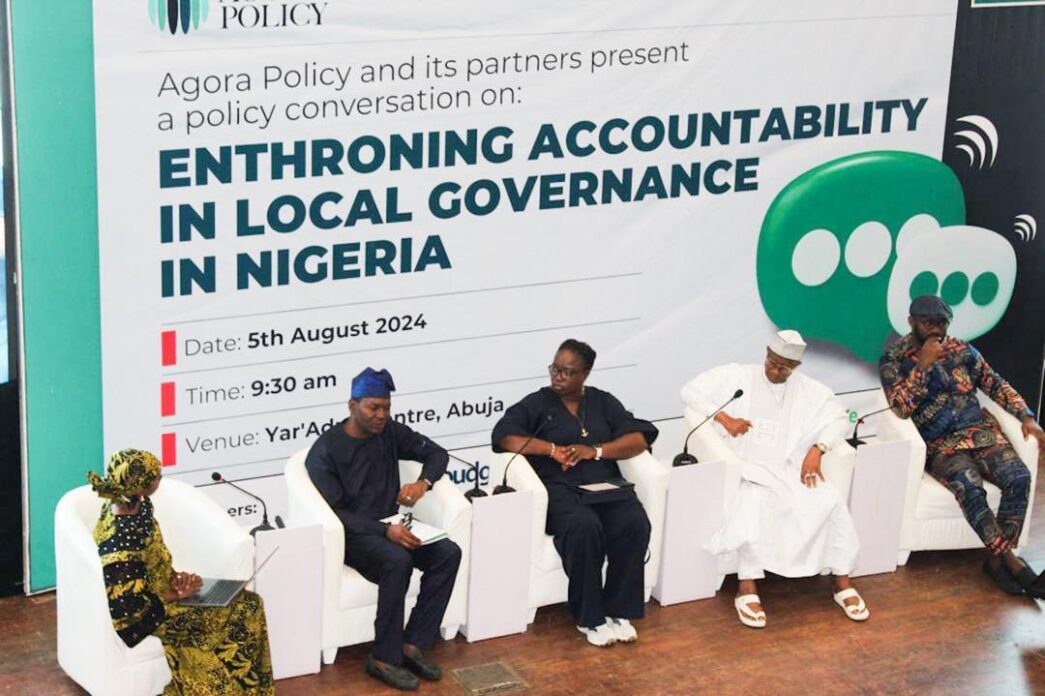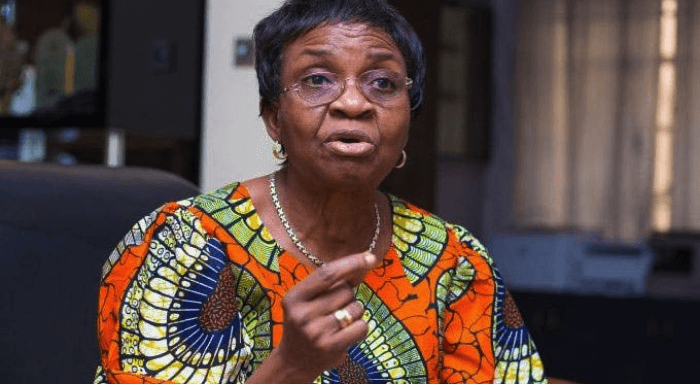Panelists at Agora Policy conversation on enthroning accountability in local governance in Nigeria
Agora Policy, an Abuja-based think-tank, says the federal government must negotiate with and win over state governments on the issue of LGA autonomy to foster cooperative federalism.
On July 11, the supreme court held that the federal government should henceforth pay allocations directly to LGAs.
The court also prohibited governors from managing local councils through caretaker committees.
In a policy paper for Agora, Remi Aiyede, a professor of political science at the University of Ibadan, said the direct allocation of funds to LGs’ accounts will lead to accountability challenges.
Advertisement
“The fragmentation caused by disjointed local government areas presents challenges in coordination, resource mobilisation, and decision-making, thus requiring long-term solutions,” he said.
“States can establish cooperation among local governments to address urban challenges collectively instead of encroaching on local functions.
“Local governments should provide services meeting citizen needs by involving residents in budget planning and decision-making.
Advertisement
“Instead of creating LCDAs, the local councils can form development committees at village or ward levels to engage residents in school maintenance, road repairs, and community projects.
“These committees, possibly voluntary, can enhance efforts in providing water, sanitation, libraries, internet access, and maintaining parks and recreational spaces.
“Bottom-up accountability for outcomes is essential to local governance. The direct allocation of funds to local governments highlights a situation where the revenue source differs from the spending location, creating a challenge for accountability called the non-correspondence problem.
“As Adio (2024) puts it, there is a need to ‘provide the incentives and the tools for citizens to exercise their agency as accountability actors, to fashion new accountability mechanisms for the local level, and to strengthen existing ones’.
Advertisement
“Citizens have different roles in local governance, such as policymakers, community organisation members, stakeholders, taxpayers, and service recipients.
“They evaluate the local government’s performance as the coordinator of service providers.
“All levels of government must manage resources wisely, follow plans and budgets diligently, and operate transparently to gain public trust and support.
“Continuous capacity building is crucial to maintaining professionalism. Integrity, grievance redressal, service standards, fair tax administration, e-governance, citizen-focused budgets, and regular comprehensive service reports are necessary.”
Advertisement
NEED FOR POLITICAL NEGOTIATIONS
The university don said the supreme court’s ruling on LG autonomy has sparked tension between state and federal authorities.
Advertisement
He called on President Bola Tinubu to engage in political negotiations as it was done in the “offshore vs. onshore rule approach” during the tenure of former President Olusegun Obasanjo.
Aiyede said state governments should acknowledge LGs as independent, community-oriented entities that operate separately from state administration or the governor’s office.
Advertisement
“Local governments should not be treated as branches of the state governments, and the stability and clarity of officials’ tenures should be guaranteed,” he said.
“Conducting regular and credible local government elections with a standardised four-year tenure is crucial.
Advertisement
“State governments should collaborate with and back local governments as partners in the state’s economic planning and growth.
“They should offer aid to local governments for participation in state-wide initiatives through financial assistance and programmes mandated by the constitution.
“The division of cities into multiple local governments poses service delivery challenges that can be overcome through intergovernmental cooperation.
“State governments should encourage and support collaboration among local governments to enhance governance and service provision in these areas.
“Local government officials (whether appointed or elected, or employed as career civil servants), should be reoriented to understand that local government belongs to citizens who have the right to be informed and participate in decision-making.
“Each local government should enact byelaws highlighting residents’ right to information, including publicly displaying budget proposals and annual performance reports, which can be accessible online.
“Transparent processes for contract bidding and citizen boards to assess service delivery performance and offer feedback are crucial for ensuring transparency and accountability.
“Inclusive methods like direct democracy, citizen charters, town hall meetings, village squares, and development committees involving all residents, not just indigenes, should be promoted to enhance continuous engagement and participation in local government activities.”
Reporting by Stephen Kenechi and Maryam Abdullahi.
Add a comment









